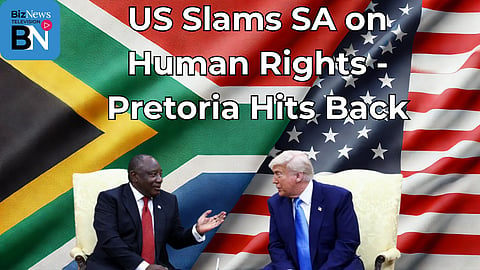US ups the ante in SA fight in updated State Dept’s Human Rights report
South Africa's human rights landscape is a complex and highly contested terrain, marked by a sharp divergence in perspectives between international observers and the national government. A 2024 U.S. Human Rights Report paints a grim picture of deterioration, citing significant concerns over land rights, violence, and state conduct. Conversely, the South African government has strongly refuted these claims, labeling the report "inaccurate and deeply flawed" and part of a "campaign of misinformation." This briefing examines the key themes of this debate, drawing from the U.S. report, government rebuttals, independent fact-checking, and media coverage.
Sign up for your early morning brew of the BizNews Insider to keep you up to speed with the content that matters. The newsletter will land in your inbox at 5:30am weekdays. Register here.
Support South Africa’s bastion of independent journalism, offering balanced insights on investments, business, and the political economy, by joining BizNews Premium. Register here.
If you prefer WhatsApp for updates, sign up to the BizNews channel here.

